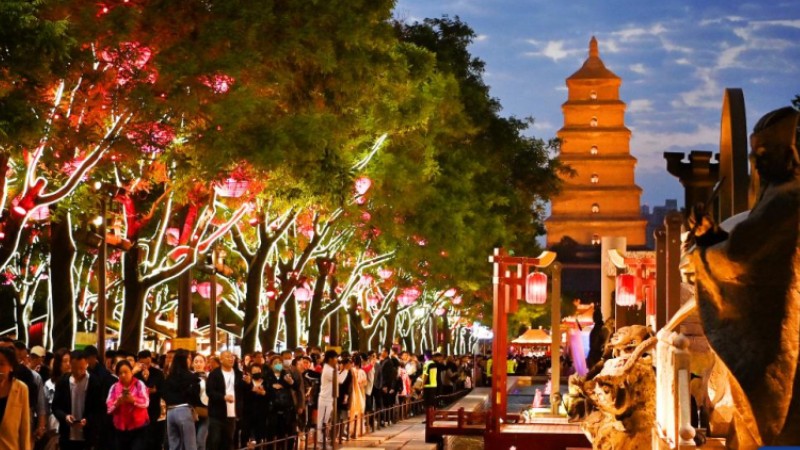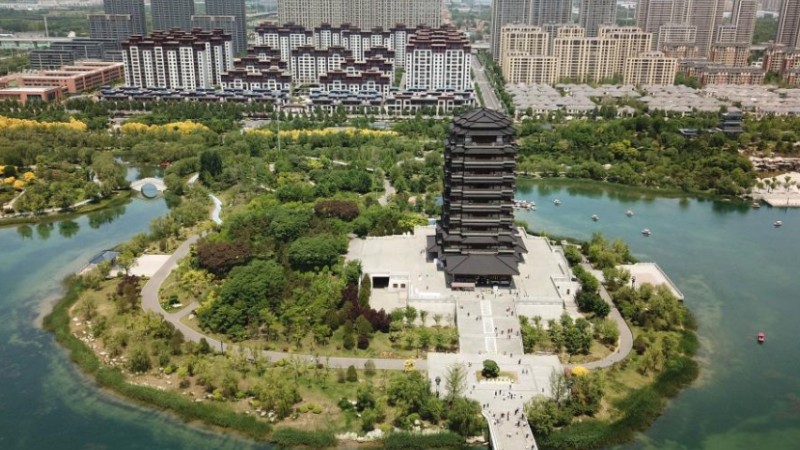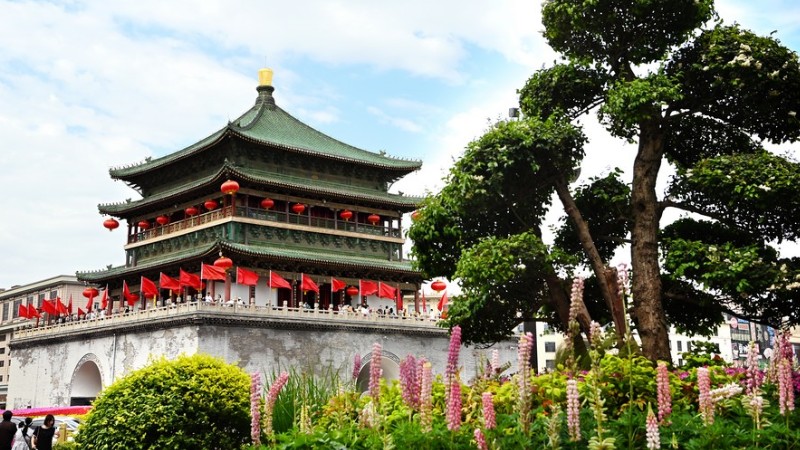Feature: With Chinese expertise, ancient Uzbek city ablaze with time-honored beauty
TASHKENT, May 13 (Xinhua) -- As an old Central Asian saying goes, "I'd be willing to offer a bag of gold to take just one look at the ancient city of Khiva."
The ancient complex of Ichan-Kala in Khiva, an Uzbek city ablaze with enduring beauty, has a history of over 2500 years.
Now, thanks to joint restoration projects between China and Uzbekistan, the original splendor of this ancient city continues to fascinate the world with its profound culture.
"Khiva is divided into the outer city and the inner city, and the inner city is the famous old city," local hotel worker Ruksana Dusekeeva told Xinhua. "Surrounded by towering walls, the ancient city itself can be considered as a unique large museum."
Located in the Khwarazm area of Uzbekistan, the Ichan-Kala complex was listed as a World Cultural Heritage as early as 1990. In 2014, Uzbekistan and China decided to work together to protect and restore Khiva, focusing on the renovation of Amir to'ra madrasasi, a religious academy, and Hasan Murod Qushbegi Mosque. The project was completed in 2019.
As an epitome of Muslim architecture in Central Asia, the old city of Khiva is broadly perceived as a unique "living ancient city," where residents live from generation to generation and have a first-hand experience of the changes in the city.
"The old city has been damaged through its age. As a resident here, my heart aches every time I see the damaged parts of buildings. When I heard that Chinese experts would come to Khiva to carry out joint restoration work, I couldn't believe it and felt very glad," said local resident Barno Karimova.
"The ancient city of Khiva was restored by Chinese experts after three years of work, and now it has become very beautiful," said Shokir Madaminov, director of Khiva State Museum-Reserve "Ichan-Kala." "Seeing the restored city, the residents feel very proud, because it is a cultural treasure of Uzbekistan."
Speaking of the joint restoration project of the old city, Abdullayev Masharib Saydamatovich, deputy director of the Center for Promotion of Science at Uzbekistan Academy of Sciences, said that the project was very difficult and required in-depth scientific research. Chinese experts made a very detailed study of the original appearance of Khiva at the beginning of the project and then drew up a restoration plan, he said.
The restoration of Amir to'ra madrasasi, he said, was carried out in stages, starting with a study of the building's foundation, and an analysis of the reasons for its subsidence. The restoration work required modern technology, while Chinese experts also used traditional techniques and local materials to do the work.
Without changing the original appearance of the relic buildings, Chinese experts of cultural relic restoration combined local traditional techniques and materials, while fully respecting local cultural characteristics.
"I was very happy to work with Chinese experts in the restoration work," said local resident Komil Olimov who worked with Chinese experts. "I was impressed by the industrious Chinese experts who treated the relics of the ancient city with great care. In the process of working with them, I have felt their sincerity and their responsible attitude toward my country's culture. I am very grateful for them and respect them."
Saydamatovich said that during the restoration work, Chinese experts and scholars had been living in Khiva and discussing together on a daily basis how to better carry out the work, communicating and cooperating directly with local residents and experts.
"The Chinese experts worked very carefully and wholeheartedly to preserve the original look of the ancient city," he said.
The joint restoration project is emblematic of cultural cooperation between Uzbekistan and China, said Gulshada Urazalieva, an independent Uzbek expert. "The outstanding work of the Chinese experts has won broad recognition from all walks of life in Uzbekistan. I am very pleased that under the framework of this project, Uzbekistan's ancient cultural cities are able to display their historical glory."
The joint restoration project has set a precedent for Uzbekistan and China in the field of cultural preservation, as well as in deepening cultural cooperation and promoting mutual understanding between the two countries, said Anri Sharapov, associate professor of the department of international relations of the University of World Economy and Diplomacy in Uzbekistan.
Sharapov voiced confidence that the two countries will achieve more extensive and diversified cooperation results in the future.
Photos
Related Stories
- Chinese vice premier meets Uzbek counterpart
- Chinese FM, Uzbek acting FM pledge to implement consensus of heads of state, strengthen all-round cooperation
- Uzbekistan welcomes Chinese new energy vehicles: Uzbek acting FM
- Uzbek president meets with Chinese FM, expecting to visit China
- Chinese FM to attend fourth foreign ministers' meeting among neighboring countries of Afghanistan, visit Uzbekistan
Copyright © 2023 People's Daily Online. All Rights Reserved.









